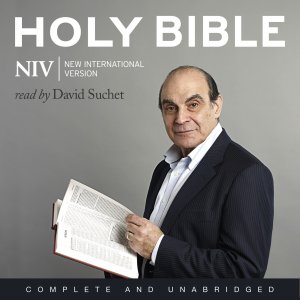Prophecy
Frances
CIJ XXIII: Replacement Theology (Part 1): Scripture Misinterpreted
Clifford Denton discusses the origins of 'Replacement Theology' and its impacts on Christian thinking.
So far in this series, we have seen how Christianity's Hebraic heritage came under attack right from the first years after Jesus and his apostles, and we have considered how this attack developed up to the fall of Israel under Rome. By this point, the ground had been prepared for the Christian Church to move away from its roots even further as time went on, and as theological ideas developed that denied its links with Israel and the Jews.
Blessings but no Curses
This eventually led many Christians to consider that God had now finished with Israel and replaced it with a new body called the Church, which would receive all the covenant blessings promised to Israel but without fear of the curses. In this study we will review the ideas behind this 'Replacement Theology' and consider its origins.
Christians and Jews eventually became so separated that many Christians began to consider themselves Israel's replacement in God's eyes.
70 AD: Judgment Day?
When Israel fell under the Romans, it became possible for Christians in the Gentile world to declare this as the final judgment of God on the Jewish nation. They could argue that Jesus had offered the gift of salvation to all of Israel and, following this, the early Apostles had witnessed to his sacrificial death and resurrection for sufficient time to give the nation its full opportunity for repentance.
To witness the terrible fate of Israel under Rome and then the dispersion of Jews to foreign lands would seem adequate evidence for this view. Add to this the Greek philosophical mindset prevalent among Gentile communities (more on this next week), and the scriptures themselves could be re-interpreted as if God had turned his attention to a people who had long been neglected and whose time had now come.
'Natural Israel' becomes 'Spiritual Israel'
Thus the idea that Israel was now to be replaced by a new body was established. The idea of 'Spiritual Israel' replacing 'natural Israel' began to take hold, so that even Old Testament mentions of Israel were re-interpreted by some Christian theologians in terms of the Church in the Gentile world, except that Jesus had now taken away the curse of the law, leaving only blessings for 'the Church'.
When Israel fell under the Romans, Gentile Christians declared this the final judgment of God on the Jewish nation. The idea that 'natural' Israel was now to be replaced by 'spiritual' Israel took hold.
With this view, Galatians 3:10-14 can be taken out of context:
Christ has redeemed us from the curse of the law, having become a curse for us (for it is written, 'Cursed is everyone who hangs on a tree'), that the blessing of Abraham might come upon the Gentiles in Christ Jesus, that we might receive the promise of the Spirit through faith. (Gal 3:13-14)
Also, taking a single verse out of context, Matthew 21:43 could be (wrongly) interpreted as saying that now the 'nation' that was to replace Israel was this new body of people drawn from the Gentile world and known as 'the Church':
Therefore I tell you that the kingdom of God will be taken away from you and given to a people who will produce its fruit. (Matt 21:43)
With this mindset, even Romans 11 (where Paul speaks of a remnant of Israel being saved) can be re-interpreted as fulfilled by the early disciples and so no longer relevant. Paul speaks of himself as being of the tribe of Israel, seemingly confirming his point that God had not forgotten individuals from Israel - providing they become 'Christians' (and of course there were many other Jews who did believe in Jesus at the time of Paul). Thus a view can be formed that God did not forget his people in confirmation of Romans 11:1-5, but fulfilled it in Paul's day.
For those who see a new body ('the Church') as replacing Israel, the grafting of Romans 11 becomes about grafting into the new, predominantly Gentile Church, rather than into the covenant family that existed before the call to the Gentiles.
Christ the End of the Law
Romans 10:4 can also be read in terms of Replacement Theology, seeing 'end' as 'put an end to':
For Christ is the end of the law for righteousness to everyone who believes.
However, this verse means that those who look forward to the coming Messiah (as Abraham, Isaac and Jacob did) perceive him as fulfilling the purposes of the Covenant given to Israel. He is in view as through a telescope. He is the end purpose of the Torah, its fulfilment, within the continuity of biblical history.
Christ is the end of the law not because he finishes it, but because he fulfils it.
Those who have adopted the mindset that a new body has replaced Israel read this Scripture as meaning that Jesus Christ put an end to the promise to Israel in order to begin a new thing, rather than to enable, through his sacrificial death, the promise to Abraham. If, again, the 'New Covenant' is seen as a complete replacement of the 'Old Covenant', in every way, then this also adds to the theory that Israel has been replaced by a new thing: 'the Church'.
Already-existing Body
The truth is that Gentiles were called into an already-existing body, by the same faith that Abraham and all his children have.
However, errors emerge when Scripture is read through biased mindsets and false pre-conceptions that have formed in the Christian Church. It is all too easy to take this position, especially if we do not develop a balanced view from the whole of Scripture. In turn, Replacement Theology fuels anti-Semitism if it is thought that God's will is to punish the Jews.
Replacement Theology is rampant and widely accepted in the Church today but its traditions, thought patterns and logics began long ago. We will consider this in the next study, quoting briefly from the writings of two of the 'Church Fathers', Justin Martyr and Origen, to illustrate the point.
Gentiles are called into an already-existing body, by the same faith that Abraham had.
For Reflection and Comment
Read the scriptures referenced in this study, with the mindset of inclusion of believing Gentiles into the Israel of God, rather than a rejection of Israel and total replacement of Israel with an entirely new community of faith. Note the wording of Jeremiah 31:27-37.
Can you find scriptures to correct the error of Replacement Theology that the Church inherits all Israel's blessings and none of its curses?
Next time: Replacement Theology Part 2.
Thank God for ISIS!
"Thank God for ISIS!" This extraordinary statement by an Egyptian leader shocked delegates at a recent international Christian conference...
He went on to explain that thousands of Muslims are turning to Christianity in reaction to the atrocities committed by the Islamic State.
All over the Middle East similar things are happening among Muslims as they see the chaos created by militant Islam and the turmoil that has spread across the whole region. It is not only Christians, Yazidis, Kurds and Shia Muslims who are suffering, but also members of the Sunni Arab community.
In Iraq, the militant Sunni jihadis led by al-Baghdadi regard all who oppose them as enemies - including fellow Sunnis. They especially hate Shia Muslims, whom they view as infidels. They see them as a fifth column at the heart of Islam that must be wiped out. The deepening Sunni-Shia rift in Iraq and the similar sectarian civil war in Syria has enabled the Islamic State to attract rebellious Sunnis from around the world.
Russian Fighters
Putin himself estimates that some 5,000-7,000 people from Russia and former Soviet countries have joined the Islamic State,1 which is one of the major reasons why Russia has decided to join the Baghdad-based 'Intelligence Alliance', in partnership with Iran/Iraq and Syria. Their objective is to share information about the Islamic State so that a co-ordinated attack can be launched.
This has wrong-footed the USA, which has been backing so-called 'moderate' Islamic groups opposed to Assad in Syria. In a failed $500 million programme, the US had been supplying weapons and training to these groups which are now being attacked by Russian bombers. Most of the fighters with American weapons are said to have deserted to the Islamic State.2
The Wrong Weapons
But will Russia and her new allies be any more successful in combating radical Islam than the USA, NATO and others who have tried to wipe out ISIS?
The plain fact is – they are using the wrong weapons. The Islamic State will never be defeated by military power! Militant Islam is driven by a spiritual force which can only be overcome by a more powerful spirit. This moves the whole conflict into a realm of spiritual warfare of which the rulers of the nations have no understanding.
The militant Islamist fighters are driven by a spirit of hatred that is blind and unresponsive to normal rational thought processes. This spirit of blind hatred goes right back to Muhammad and the fearful atrocities he committed against his enemies, especially Jews and Christians. The historical accounts of his activities in and around Medina and Mecca are being replicated by the Islamic State in the name of the god of Islam.
Militant Islam cannot be overcome with human weapons, for it is driven by a spirit of hatred that can only be overcome by a more powerful spirit.
This is what is being increasingly recognised by those who have been brought up in the Islamic faith - such as President Sisi of Egypt, who in a New Year 2015 message called upon Muslim scholars to examine their scriptures and historical documents to determine what is happening in the Muslim world. This is something that only they can do.
Action Points for Christians
But is there anything that Christians can do? In the first place we can spread the whole situation before God in our prayers and seek to understand what God himself is doing in the Middle East and in other parts of the world (such as Indonesia, where millions of Muslims are becoming Christians).
The second thing we can do is in our Bible study groups, look at the way God has acted in the past. For example, when a united Arab army invaded Israel during the reign of King Jehoshaphat he recognised that the tiny army of Judah was no match for them and called for a time of prayer and fasting. He led the nation in prayer, "We have no power to face this vast army that is attacking us. We do not know what to do, but our eyes are upon you" (2 Chron 20:12). This prayer of faith was answered by a prophetic word: "Do not be afraid or discouraged because of this vast army. For the battle is not yours but God's."
It is this kind of faith that is needed today, plus the discernment to see what God is doing so that we can pray into the situation with understanding. There is no doubt that God is at work among Muslims, opening eyes that were blind and enabling them to understand the spiritual power behind Islam that enslaves their women and drives the men to the most appalling acts of barbarism and savagery.
Christians need both faith and discernment to understand what God is doing. It can help to look at the way he has acted in similar circumstances in the past.
Heavenly Agenda
As the Egyptian Christian leader implied in his somewhat shocking statement quoted at the beginning of this article, God is actually using these atrocities to release those who are bound by spiritual evil.
Angela Merkel, who is said by those who know her to be a Bible-believing Christian, has got it right in welcoming migrants from the Middle East who are escaping war and terrorism. As a politician she has been incredibly bold in the face of considerable opposition, even from her own party. If Europeans are prepared to take the risk of Jihadi fighters being amongst the migrants and welcome them with love and generosity in the name of Jesus, the God and Father of our Lord Jesus will touch their hearts and there will be a mighty harvest for the Kingdom among the multitude coming into Europe.
It may even be that God will use this migration to turn the hearts of the European nations, who have so largely abandoned the word of God and despised the precious spiritual heritage of their forefathers.
Possible Revival
Only God can turn the tide of secular humanism that has already brought the nations of Europe to the brink of disaster. But God's purposes are always for salvation rather than judgement and in his mercy he is longing to use the tragic situation in the Middle East to trigger a mighty spiritual revival in Europe that could change the history of the world.
God is longing to use the tragic situation in the Middle East to trigger a mighty spiritual revival.
We are on the edge of a cusp which could tip either way – into disaster or into a glorious fresh spiritual awakening bringing Kingdom values into the life of the Western nations. The way we react to the migrant crisis may well determine the future history of the world.
References
1 Biryukov, A. Putin Says Thousands from Russia, CIS Joined Islamic State. Bloomberg Business, 16 October 2015.
2 Middle East Eye, 28 September 2015.
Spiritual Gifts IX: 'If you are put in charge, don't manipulate'
"If God has given you leadership ability, take the responsibility seriously": Monica Hill looks at the spiritual gift of leadership as described in Romans 12.
The gift of 'leadership', as such, only appears in Romans 12, although the five ministry roles in Ephesians 4 are often referred to as those necessary for leadership. Both passages tell us about the emphases that good spiritual leadership should have. In Romans, referring to individual ministry: "not conforming to the pattern of the world...not thinking of yourself more highly than you ought but with sober judgement in accordance with the measure of faith God has given you" (12:2-3).
In Ephesians, for team ministry: "to equip God's people for works of service, so that the body of Christ may be built up" (4:12). So spiritual leadership is not a status symbol, neither does it have worldly values, but it is supporting others who are on the front line.
Misusing Power
The Message version - used in the title quote – gives a warning context, as it equates 'leading' with 'being put in charge', which can often lead to great misuse of power. Leadership is not just a means of doing what you want. There is a great difference between 'ascribed' leadership, which is imposed or inherited, and 'achieved' leadership - which is earned.
There is a great difference between 'ascribed' leadership, which is imposed, and 'achieved' leadership, which is earned.
'Ascribed' leadership can often have disastrous consequences if the leader is not sensitive in the exercise of power; whereas the most effective leadership is that which is 'achieved' and is fully recognised and accepted by the people. But in both cases, the leader must beware of just trying to get their own way, with or without the backing of others.
Many commentaries limit this gift in Romans to that of 'administration'. While this is important, leadership is much more than just management - it should be about nurturing and enhancing. These are the aspects that should be valued and considered relevant in Christian circles and especially in small groups. The Amplified Version expands its definition of leadership to 'he who gives aid and superintends, with zeal and singleness of mind'.
What is Leadership?
Leadership is a 'people skill'. Mahatma Gandhi once said "I suppose leadership at one time meant muscles; but today it means getting along with people". John Quincy Adams, 6th President of the USA, rightly understood that "if your actions inspire others to dream more, learn more, do more and become more, you are a leader" (see other quotes in the box).
There are many examples of worldly leadership using wealth, might, power, intellect and privilege; but spiritual leadership needs to have a servant dimension which recognises the importance of empowering others.
The difference between a leader and a boss is that the leader leads while the boss drives. The New Testament shepherd leads his sheep, who follow willingly because they know his voice and trust him, while so many Western shepherds drive their sheep or use a dog to chase them!!
Outstanding leaders go out of their way to boost the self-esteem of those who follow them. If people believe that God is empowering them, it is amazing what they can accomplish - not to give themselves glory but to give the glory to God.
How should Leadership be Exercised?
Most biblical translations say that leading should be exercised 'diligently' - the opposite of negligently. Leaders should be actively and fully committed, engaged and occupied, exercising caution, and showing care and attention, which is characterised by hard work and perseverance.
Although in English 'diligent' has always meant careful and hard-working, it comes from the Latin diligere, which means 'to value highly, take delight in'. The Voice translation of Scripture says leaders should be 'eager to get started'!
Vision and Strategy
Leaders not only need to know where they are going, with a forward-thinking, biblical vision that is embraced by all; they also need to be able to help define the strategy for achieving that vision.
Proverbs 29:18 says "Without vision the people perish" and The Voice defines this even more clearly: "If people can't see what God is doing, they stumble all over themselves".
If you think you are leading and no-one is following you, you are just taking a walk!
Affirmation
We all belong to groups of many different sizes and recognise the need for leadership. We may ourselves have, or be exercising, this gift at a variety of levels. But leaders need followers. If you think you are a leader and no-one is following you, you are just taking a walk! Leadership ALWAYS needs to be affirmed by others.
If you have any other comments on 'leadership' as a spiritual gift please do add them.
References
1 Quotes from 75 Inspiring Motivational Quotes on Leadership, Inc.com.
Changing Britain?: Archive
Back issues from our 'Changing Britain?' series, with statistics from Peter Brierley and comments from Monica Hill.
Extra Resources: You may also be interested in a recent BBC programme about global population growth, currently on iPlayer: Don't Panic: The Truth About Population, originally broadcast on BBC2. Presented by statistician Hans Rosling.
The Spiritual Gifts: Archive
Back issues of Monica Hill's series on the spiritual gifts.
- The Spiritual Gifts
- Speaking and Serving
- Turning Natural Talents into Spiritual Gifts
- Sounding Forth the Praises of God and Declaring His Will
- Serving: "If it is serving, let him serve"
- Teaching: "Teach me to do your will"
- Encouraging: "Therefore, encourage each other..."
- Giving Sacrificially
- Leadership: "If you are put in charge, don't manipulate..."
- Acts of Mercy
- Building up the Body: The Ministry Gifts of Ephesians 4
- Apostles
- Prophets
- Evangelists
- Pastors
- Teachers
- The Manifestations of 1 Corinthians 12
- Wisdom and Knowledge
- Prophecy
- Tongues and Interpretation of Tongues
- Faith, Healing and Miraculous Powers
The Jewish Feasts: Archive
Back issues from Helen Belton's series on the Jewish feasts.
The Ministry of the Prophet: Archive
Back issues from Edmund Heddle's series, The Ministry of the Prophet, re-printed from the late 1980s.
- The Ministry of the Prophet
- What is a Prophet?
- The Calling of a Prophet
- The Spirit of Prophecy
- Like a Dove
- Anointed with the Spirit
- Prophecy and the Law of God
- The Spirit and Power of Elijah
- Prophets as Intercessors
- Prophetic Witness
- John the Baptist: Prophet of the Most High
- The Prophet as a Watchman
- Prophets as Singers
- Balaam: the Unholy Prophet
- By Dreams and Visions
- Enacted Prophecy
- Woes and Burdens
- Interpreting Signs
- A Prophet like Moses
- Warning Messengers
- Women Prophets
- Persecuted Prophets
- Revealing the God to be Feared
- Zion's Comforter
- Prophets and the Weather
- Sounding the Alarm
- Prophets' Emotions
- Schools of the Prophets
- The Goodly Fellowship of the Prophets
- The Prophet's Requirements
- Prophets and the Messianic Hope
- Putting Over God's Point of View
- Agents of the Covenant
- Turning and Returning
- Leading God's Army Into Action
- Prophetic Fire
- Prophets' Patience
- Perplexed Prophets
- Peter on Prophesying
- Early-Morning Interview
- God's Greatest Prophet
Christianity, Israel and the Jews: Archive
Back issues from Clifford Denton's series: Christianity, Israel and the Jews.
- Christianity's Relationship with Israel and the Jews
- The Olive Tree
- Romans 11
- The World of the Bible
- Law and Grace Pt 1
- Law and Grace Pt 2
- Jesus the Jewish Messiah
- The Church's Jewish Heritage
- The Council of Jerusalem Pt 1
- The Council of Jerusalem Pt 2
- Paul and the Torah Pt 1
- Paul and the Torah Pt 2
- Paul and the Gospel: Salvation and Community Pt 1
- Paul and the Gospel: Salvation and Community Pt 2
- Our Inheritance from Israel and the Jews
- Theological Conflict
- Exclusion from the Synagogue
- The Fall of Israel Under Rome Pt 1
- The Fall of Israel Under Rome Pt 2
- The Jewish Revolts Pt 1
- The Jewish Revolts Pt 2
- The Parting of the Ways: Two Distinct Communities
- Replacement Theology (Part 1): Scripture Misinterpreted
- Replacement Theology (Part 2): The Teaching of the 'Church Fathers'
- The Early Fathers of the Christian Church
- Anti-Semitism in the Middle Ages
- The Reformation and the Emergence of Christian Theologies
- Early Jewish Sources
- The Shema
- God's Covenant Principles
- Torah Foundations
- Roots and Fruit
- The Hebrew Basis of Scripture
- Resources for the Series
Review: NIV Audio Bible App (read by David Suchet)
'The NIV Audio Bible App: Read by David Suchet', for iPhone and iPad, available from the Apple App Store/iTunes. Also in CD format (see Further Information). Price including audio, £19.99; basic app excluding audio, £2.99.
N.B. App requires 1.3GB installation space.
This app includes the full British text of the NIV Bible and full narration by British actor David Suchet, as well as many very useful features including a keyword search across the entire Bible, reading plans offering short (14 day) introductory guides to Jesus, Paul and the Old Testament, and summaries of each Bible book.
Another very worthwhile feature is a shortcut to many well-known passages of the Bible making it quick and easy to find any parable or miracle of Jesus or other significant events in his life - or indeed across the whole Bible. Also included in this menu is the ability to find passages relating to key personalities via an alphabetical list of their names. Overall the navigation is simple and effective. The Quick Verse Selector helps you find passages at speed and remembers your most visited places.
Navigation of the app is simple and effective – and it includes a variety of useful features in addition to the text and audio.
Journaling feature
The journaling feature allows you to add your own notes and bookmarks alongside the Bible text as if you were writing in the margins of your print Bible. Using this is easy and full instructions are given, both in terms of making notes and finding them again. You can even share them via the usual media of Twitter, Facebook, texts or email.
There is also a clear guide to using the app to help you get started and a section of FAQs to help with continued use. Getting the most out of the app is easy to grasp, and you need never be stuck!
Display options
The text itself is clear and readable, and available in two font sizes. The chapter and verse numbers can be switched off, as can the toolbars, if this helps give a less cluttered reading experience. Brightness can also be adjusted, and there is a 'dark mode' creating white letters on a black background. The words of Christ can also be turned red if desired.
The text can be scrolled up and down or swiped sideways as though turning normal pages. The footnotes of the print Bible are also available, appearing as pop-ups when you tap the small superscripted letter coloured blue in the text. Explanations of the archaic weights and measures and their metric equivalents can be found in a separate menu, under 'App Information'.
Suchet's Narration
And then there is the narration. A wonderfully sonorous and measured reading of three quarters of a million words, lasting 80 hours! The pace is unhurried and there is some characterisation though not excessively so that it grates on the ear. It is a very enjoyable listening experience from an acclaimed actor whose deep and melodic tones guide you gently but expertly through even the most difficult (and dare I say, boring!) passages.
David Suchet's narration is wonderfully sonorous and unhurried, guiding you gently but expertly through even the most difficult passages.
If you wish you can follow the text as it is narrated by selecting 'Highlight verse with audio'. Each verse is highlighted with a light grey background as it is read, and the pages are even turned for you at the appropriate moment.
Simply sitting back and listening to Suchet will also provide an opportunity to memorise verses as you can repeat sections over and over again until you have them in your head and your heart.
Overall
Here is a Bible App that will satisfy both those familiar with the scriptures and those just beginning to explore what the Bible has to say. It would make a splendid gift for Christmas, and for life!
Further information
Readers may enjoy a short background video on Youtube (2:32) in which David Suchet explains his own faith background and approach to the recording.
Alternative formats: The audio recording is also available in CD format from Hodder Faith and from Amazon. Both also sell part-recordings (e.g. the Gospels, the Psalms/poetry books).
Review: In the Footsteps of St Peter (DVD)
'David Suchet: In the Footsteps of St Peter' (documentary), originally broadcast 3rd/5th April 2015, BBC1. Episode 1 available in full on Youtube. Full documentary available as a REGION 1 DVD (USA only) from Amazon.
In this DVD of a two-part series originally broadcast on the BBC, the well-known actor David Suchet invites us to join him on his personal quest to discover the nature and character of the man who became known throughout the world as St Peter.
There is so much to enjoy in these films as we are guided sympathetically and intelligently through the story of Peter's life from his early beginnings as a Galilean fisherman. We are treated to some wonderful locations and spectacular settings as well as lots of fascinating information which will reinvigorate familiar Biblical passages. And we get to hear David read from scripture in his rich and well-trained voice!
Skilful Presentation
The programmes follow a typical format. Our presenter spends a lot of time in discussion with a variety of experts: archaeologists, historians, Biblical scholars. By his intelligent questions and genuine desire to understand St Peter better, Suchet skilfully enables these experts not just to display knowledge, but to become instrumental to our own learning.
Then, addressing us directly in his pieces to camera, he muses over what he has discovered and shares what he now understands of the man behind the Biblical texts. Gradually the character of Peter comes to life in the mind of a character actor.
Suchet brings the character of Peter to life through his sympathetic, intelligent presentation and his own personal enthusiasm.
Galilee
We start in Galilee where Suchet samples St Peter's fish and visits Peter's house. The scene examining the 'Jesus boat' will fascinate many, as will the fishing trip on the lake in a modern boat. But it is as Peter is called to follow Jesus and be a 'fisher of men' that the story develops. His faith and failings show him as a flawed but committed disciple who knew the dangers of following Jesus but who comes to an inspired realisation that here indeed is the Messiah.
The scene at Banias is particularly well presented and overall we gain insights into the dynamic that must have existed between Peter and Jesus – again, a key interest of our actor-presenter.
Jerusalem
In Jerusalem we visit a yeshiva and witness how Jews debate and learn – a very informative section for those previously unaware of this. In Gethsemane we are shown the type of sword Peter would have carried. Naturally we visit the Holy Sepulchre but it is pleasing that by contrast we are also taken inside a typical empty family tomb, such as Peter ran to on Easter Sunday morning.
Acts
In the second hour we pick up the story after the resurrection and examine key passages in Acts. Peter's preaching at Pentecost is explained, as is his time in Joppa and Caesarea, with the household of Cornelius.
The mention of Cappadocia in the opening of Peter's first letter provides a perfect excuse to visit that extraordinary part of Turkey with its breath-taking landscape. Never mind if Peter didn't actually visit there himself - this is a wonderful opportunity to see examples of cave churches carved in the rock with their magnificent frescoes, typical of first century Christian communities that Peter will have ministered to. Here is one of the DVD's visual highlights.
A visual highlight is the coverage of Cappadocia's cave churches, which once held congregations to which Peter would have ministered.
Rome
We inevitably finish in Rome and the Vatican, with its own particular splendour. Here issues around Peter's death and whether he founded the church there are sensitively explored, together with the belief that he was the first Pope. As always our genial and thoughtful guide helps us unravel tradition from history and Biblical passages.
Fresh study material
This DVD can be watched several times and still remain fresh. It is so full of helpful background and insights, and would be particularly useful for small study groups and discussion groups, especially those just beginning to explore the Jewish roots of Christianity. Leaders can adapt the two 1-hour programmes into various lengths to provide visual material for several evenings, perhaps with the Scriptures being read and considered alongside the various scenes. The overall effect will remain long in the memory.









